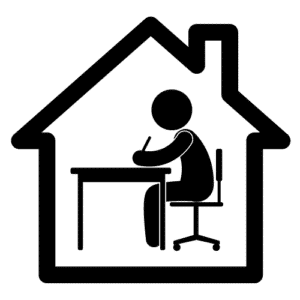From the Wall Street Journal
For millions of Americans, November will mark the eighth month of remote work.
Some have adapted: A recent survey of more than 4,000 people working full time remotely during the pandemic found that 65% would like to make the arrangement permanent, according to FlexJobs, a remote job-listings website.
But a survey of more than 12,000 employees, managers, human-resources leaders and executives in 11 countries released this month by Oracle and the advisory firm Workplace Intelligence found that seven in 10 people called this the most stressful year of their working lives; 41% said there no longer was a distinction between their personal and professional lives.
“For so many people, Round One of this whole scenario was fueled with adrenaline,” said Karen Mangia, vice president of customer and market insights at Salesforce. “What I’m hearing so many people ask is, ‘How long is this going to last?’ ”
Whatever the answer, workplace authorities agree that there are a few simple steps anyone—no matter their industry, seniority or number of roommates—can take to improve the work-from-home experience.
Vet your setup
The best way to a better workday is to put your home setup under a microscope, experts said, and fix what isn’t satisfactory. “What I usually recommend people do is focus on where they feel the most friction,” said Brie Reynolds, career development manager and coach at FlexJobs. “Where are the biggest pain points during the day? Where do [workers] feel the most stressed or the least comfortable?”
Make space
A dedicated workplace helps productivity, consultants agreed. Improving your home office, whether it is a whole room or a corner of a table, can be as simple as taking a moment to consider whether your chair is comfortable, Ms. Reynolds said. If private space at home isn’t possible, try equipment such as noise-canceling headphones.
Eliminating clutter also is crucial, especially in tight quarters, according to Wendy Ellin, a workplace-productivity consultant. “Not everybody has an office with a door,” she said. “If you’re looking around and you see a bunch of piles—junk, laundry—is it serving you well?”
Find your focus
Working from home lets many people organize meetings, emails, conference calls, workouts and personal errands however they choose during the day. While this works for some, others find themselves struggling to focus on individual tasks.
“At home, it’s not just that we’re trying to battle work distractions, it’s also that we’re getting distracted by all the other things we feel like we should be doing there,” said Ms. Mangia, who recently published “Working From Home: Making the New Normal Work for You.” She recommends setting a timer for 30, 60 or 90 minutes of focused work, free of distractions such as email, app alerts and beeps from devices. After a sprint of work, go outside, stretch, have lunch or just take a break. “It’s amazing what you can accomplish in a small amount of focused time,” she said.
Heed your stressors
In September, the number of people in the U.S. reporting signs of anxiety and depression through an online screening tool from nonprofit advocacy group Mental Health America since the pandemic began hit a high.
Rebecca Haskell, founder and chief executive of Just Design Consulting, a workplace-advisory firm in Oakland Calif., recommended that people identify what makes them feel most stressed and how they can mitigate stress and feel better. “It’s less about having a best practice and more about knowing yourself and what you need,” she said.
Some of her clients say they can’t stop scrolling through headlines on social media, which makes them feel anxious and guilty about wasting time. “I don’t think it’s helpful to not read the news and pretend that things aren’t happening around us,” Ms. Haskell said. Instead, she recommends setting aside time for reading the news and checking social media, especially if it plays a role in one’s job. Afterward, take a short break and prepare to return to work.
Understand expectations
Now—almost a year into remote work—is a great time to ask your manager how things are going, Ms. Reynolds said. Inquire about short- and long-term goals and your manager’s expectations about when you are starting and ending the workday.
It is equally important to be upfront about your own needs, whether it is a few hours to finish a project when you won’t be answering calls or emails or a warning at the beginning of a video meeting about a potential interruption.
“Transparency helps everything,” Ms. Ellin said. “Give me the heads-up and let me know going in that you have a kid that’s napping and they’re going to wake up.”









